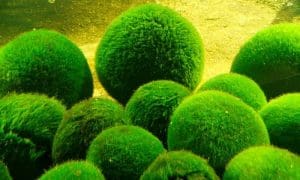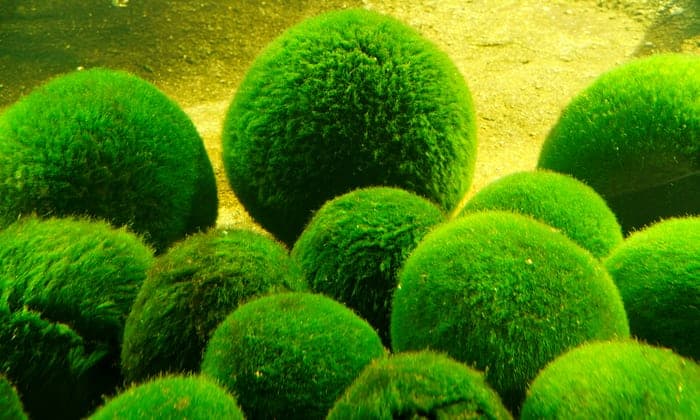
Do you take an algae supplement? Have you ever wondered if an algae supplement, or a supplement containing algae, could be beneficial? Wonder no more, we’ve got all the information right here.
Algae—lovingly known as the scum we scrub off our fish tanks, or the slime in tide pools that nobody wants to touch—may just hold the secret to a long and healthy life. Before you shudder and say, “No thanks,” bear with us a moment.
Algae is a simple organism that’s been around since ancient days. The marine form of microalgae is known as phytoplankton, and generates about half of the world’s oxygen. One form of algae, spirulina, has become one of the biggest trends in the world of superfoods—and it would appear there’s good reason for it. Some researchers consider it “one of the most nutritious foods known to man.”
You may also have heard of chlorella, a close cousin of spirulina. But while both are considered to be pretty powerful among superfoodies, spirulina may just win out with its nutritional profile, clinical trials and generally cleaner profile. These edible algae are typically grown in controlled pond environments to minimize or prevent toxin absorption.
So what is it about this “slime” that has garnered it a place in our lattes, smoothies and snacks as a cure-all for nearly everything? Nearly 1,700 scientific peer-reviewed articles later, we may finally have some answers (even though a lot more research is still needed).
What makes algae a superfood?
Both chlorella and spirulina supplements contain a high amount of antioxidants, plant sterols, Omega-3 fatty acids (both the essential ALA and rarer EPA forms). Algae is particularly high in a number of essential vitamins, minerals and macronutrients like protein.
Hawaiian Spirulina Pacifica is one of the most potent forms, and possibly the superfood to trump all superfoods. Made of 60% protein, this variety has 2800% more beta-carotene than carrots, 3900% more iron than spinach, 600% more protein than tofu and 280% more antioxidants than blueberries. Now that sounds like a superfood if we’ve ever heard of one.
Algae Supplement Benefits
Algae has been closely examined in clinical and animal trials to determine its efficacy against certain diseases. The results have been promising across a number of conditions, further driving the idea of algae as the cure-all superfood of the century. Some of the health benefits of algae, and spirulina in particular, include:
Potential to detox heavy metals
Heavy metals like arsenic are prominent problems. Arsenic is heavily present in the U.S., and many people in Bangladesh suffer from arsenic toxicity. One Bangladeshi study revealed that participants who took a zinc spirulina supplement showed a 47% decrease in arsenic levels.
Potential to improve blood cholesterol levels
Some clinical trials have shown reductions in blood cholesterol and blood pressure among non-placebo study participants. More research and trials are needed to confirm whether or not improvements directly correlate to algae consumption.
Potential to manage HIV/AIDS
The cure for HIV/AIDS may still be a thing of the future, but thankfully there are treatments that been effective at managing symptoms and decreasing mortality rates. And algae may just be the next great and natural treatment. One study saw “clinically significant improvement in CD4 (infection-fighting white blood cells) and decreased HIV viral load.”
Potential to improve memory
Spirulina has been tested on rats and mice in a Parkinson’s disease model to see how it might affect memory. The results? Both study subjects showed neuroprotection against memory loss and brain damage, suggesting that spirulina may provide a natural and powerful treatment for Parkinson’s disease.
Potential to fight or prevent cancer
To date, there have been loads of peer-reviewed scientific articles examining the potential cancer-fighting properties of spirulina. Between animal and test tube studies, researchers at the University of Maryland Medical Center suggested that spirulina’s ability to increase infection-fighting proteins in the body may make it beneficial for fighting and preventing cancer.
Potential to improve energy levels
While no clinical trials have been done to test algae’s effect on energy levels, many people who take a spirulina supplement swear that it gives them a healthy boost of natural energy.
Other conditions that algae like spirulina may be helpful in treating include anxiety, low immunity, digestion, depression, PMS, diabetes, Hepatitis C and gum disease. Research on these applications may still be scant, but there’s ample opportunity to continue this vital research into what might just be the long-sought miracle food.
Are algae supplements safe?
Algae supplements are generally considered to be possibly safe for most people, according to WebMD. That is, unless it’s contaminated by toxic metals, bacteria or microcystins, which could harm your liver. Side effects of contaminated spirulina may include stomach pain, vomiting, increased heartbeat, shock or even death. That means you should never harvest algae from a lake or ocean to chow down on. Any algae intended for consumption should be tested to ensure there are no microcystins or harmful bacteria present. Some small studies have shown that spirulina may be less prone to toxins, and therefore may be generally a better choice than chlorella or other blue-green algae.
Algae supplements may also increase symptoms of some autoimmune conditions, such as multiple sclerosis, lupus and rheumatoid arthritis, so these supplements should be taken only after speaking with a medical professional.
Algae supplements may or may not be the cure-all to life’s ills, but the research to date is promising. And as the body of research continues to grow, scientists may just discover that one secret to a healthy life lies in the long scoffed-about “pond scum.”
To learn about some high quality Algae-based superfood supplements, click the link below!
I’m not just a supplement analyst. I’m an extremely qualified one! I am a Certified Nutrition Coach (CNC) and actually received my certification directly from the National Academy of Sports Medicine. I am also a Nutrition & Wellness Consultant, certified by the American Fitness Professionals Association (AFPA).


